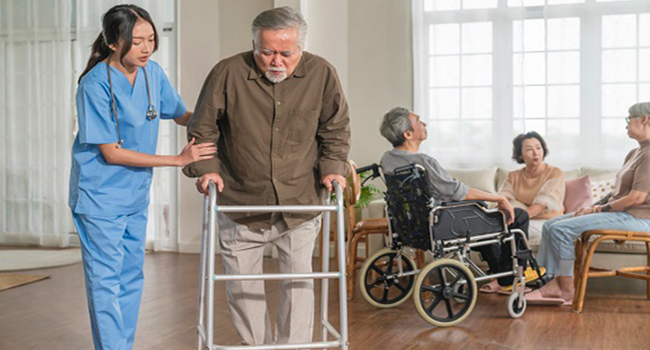
Old people, especially in nursing homes, are not a deeply investigated population group and are more likely to be frequently affected by chronic or acute health issues. A clinical trial has investigated the use of an angiotensin-converting enzyme (ACE2) as a possible biomarker for demonstrating frailty in nursing home residents.
Frailty is a condition that affects older adults, making them more vulnerable to illnesses and injuries. It is an age-related syndrome that causes increased vulnerability in older people exposing them to a higher risk of adverse health-related events such as hospitalization, dependence, and even death. Researchers have been looking for ways to identify frailty early so that preventative measures can be taken to improve the quality of life for older adults.
ACE2 is an enzyme that plays a crucial role in the renin-angiotensin system, which regulates blood pressure and fluid balance in the body. Additionally, it is also raised in inflammation and stressful conditions of the body.
Clinical Trial
A clinical trial has found that high serum angiotensin-converting enzyme 2 activity may be a biomarker of frailty in nursing home residents.The trial involved 228 nursing home residents who were over 70 years old. The researchers measured the participants' ACE2 activity and assessed their frailty using the Clinical Frailty Scale. The findings demonstrated that those with high ACE2 activity were more likely to be frail than those with lower ACE2 activity levels.
The results of the clinical trial showed that higher serum ACE2 activity was associated with a higher body mass index, worse physical function, greater dependence, and increased frailty.
